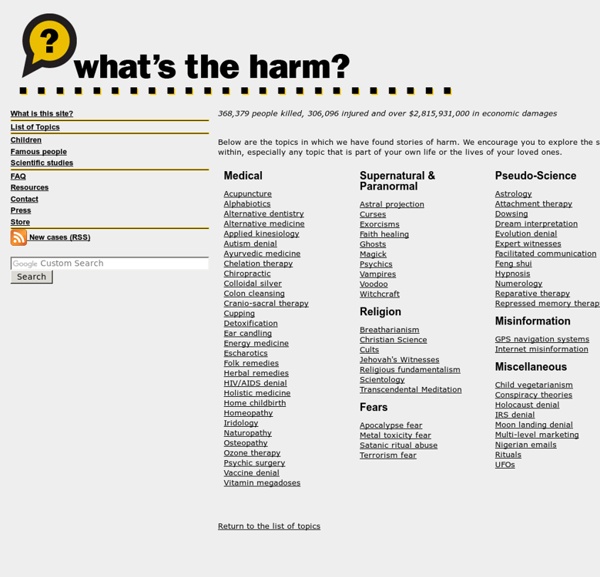



Dicionário do Cético What's The Harm? Hi reader in Canada, it seems you use Wikipedia a lot; I think that's great and hope you find it useful. It's a little awkward to ask, but this Sunday we need your help. We depend on donations averaging $15, but fewer than 1% of readers choose to give. If you donate just $3, you would help keep Wikipedia thriving for years. The Skeptic's Dictionary Tales - Norse Mythology for Smart People The body of stories that we today call “Norse mythology” formed one of the centerpieces of the pagan Norse religion. These are the tales that Viking poets recited in dimly lit halls to the captivated attendees of grand feasts, and which fathers and mothers told to their children around roaring hearth-fires on long winter nights. They are epic myths of war, magic, love, betrayal, triumph, and ruin.
Thou shalt not commit logical fallacies Encyclopedia Mythica: mythology, folklore, and religion. Discworld Brasil Logical Fallacies: The Fallacy Files Game of Thrones BR A Wiki of Ice and Fire Scott McCloud E-merl.com ~ New Experiments In Fiction